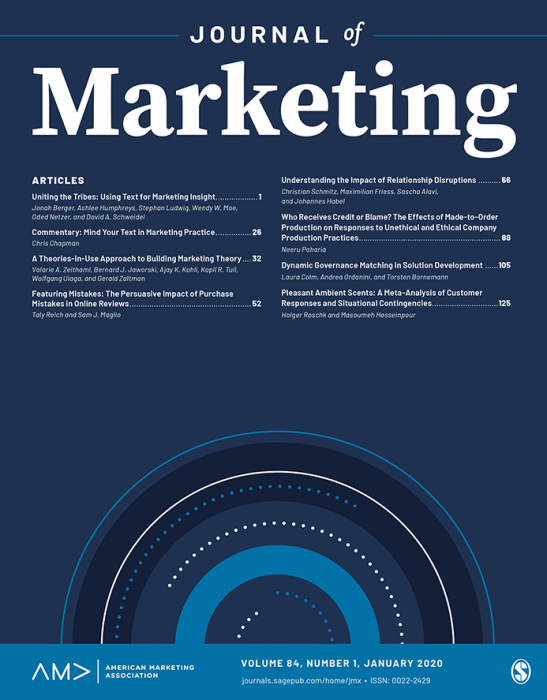快讯夏令时变化对消费者不健康行为的影响
IF 10.4
1区 管理学
Q1 BUSINESS
引用次数: 0
摘要
先前的研究表明,每年夏令时的时钟变化会在许多情况下产生有害后果,但人们对这一政策对消费者行为的影响却知之甚少。尽管围绕停止季节性时钟变化的政策辩论仍在继续,但全球数百万消费者可能会受到时间变化的不利影响。作者借鉴嗜睡和自我控制的概念,提出了一个夏令时开始如何增加不健康行为的框架。作者通过在差异模型框架下进行的两项研究对上述假设进行了检验,这两项研究分别捕捉了时间变化前后的消费情况,以及经历过时间变化的消费者和没有经历过时间变化的消费者的消费情况。第一项研究的结果表明,夏令时的开始会增加包装零食的卡路里消耗量,这些零食大多是不健康的,尤其是在傍晚和阴天。夏令时结束时的影响并不显著,这表明时间变化对不健康行为的影响总体上是不对称的。研究 2 显示,夏令时的开始会减少健身中心的访问量,尤其是对于没有健康消费习惯且交易成本较高的消费者而言。对社交媒体数据的分析表明,消费者认为时间变化具有破坏性。总之,研究结果表明,公共政策制定者和企业应该想方设法在夏令时开始时为消费者提供支持。本文章由计算机程序翻译,如有差异,请以英文原文为准。
EXPRESS: Spring Forward = Fall Back? the Effect of Daylight Saving Time Change on Consumers’ Unhealthy Behavior
Prior research documents deleterious consequences of the annual clock change to daylight saving time in many contexts, but little is known about the effect the policy has on consumer behavior. While policy debates around ending seasonal clock changes continue, millions of consumers worldwide are potentially adversely affected by the time change. Drawing on the notions of sleepiness and self-control, the authors propose a framework of how the onset of daylight saving time increases unhealthy behavior. The hypotheses are tested via two studies cast in the difference-in-differences modeling framework capturing consumption before and after the time change and across consumers who experience the transition versus who do not. Results of the first study suggest that the onset of daylight saving time increases calorie consumption from packaged snacks that are largely unhealthy, specifically in the evening and on cloudy days. The effect of the end of daylight saving time is not significant, suggesting an overall asymmetric effect of the time change on unhealthy behavior. Study 2 reveals that the onset of daylight saving time decreases fitness center visits, particularly for consumers without healthy consumption habits and with high transaction costs. Analysis of social media data suggests that consumers find the time change disruptive. Overall, the findings imply that public policy makers and businesses should find ways to support consumers around the onset of daylight saving time.
求助全文
通过发布文献求助,成功后即可免费获取论文全文。
去求助
来源期刊

Journal of Marketing
BUSINESS-
CiteScore
24.10
自引率
5.40%
发文量
49
期刊介绍:
Founded in 1936,the Journal of Marketing (JM) serves as a premier outlet for substantive research in marketing. JM is dedicated to developing and disseminating knowledge about real-world marketing questions, catering to scholars, educators, managers, policy makers, consumers, and other global societal stakeholders. Over the years,JM has played a crucial role in shaping the content and boundaries of the marketing discipline.
 求助内容:
求助内容: 应助结果提醒方式:
应助结果提醒方式:


